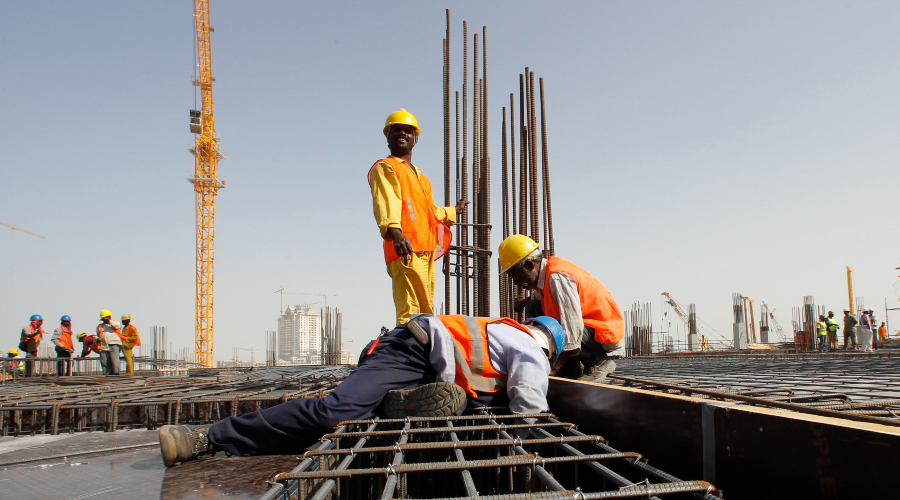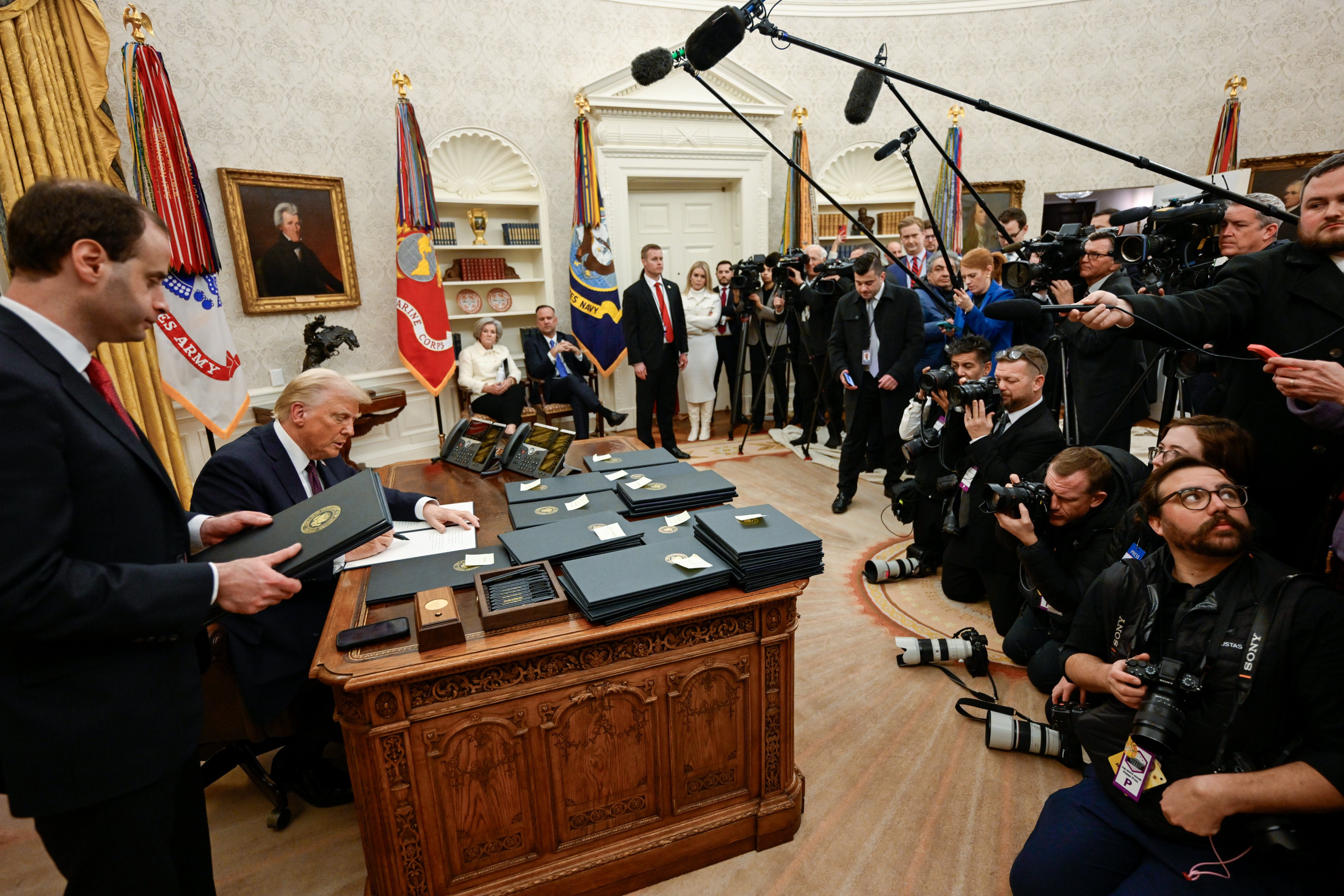The Kafala System Is Facilitating Labor Abuses in the Middle East

Published by The Lawfare Institute
in Cooperation With

Editor’s Note: Migrant laborers around the world face difficult conditions and suffer many abuses. In the Middle East, much of this is associated with the kafala system, which governs contracting of foreign laborers in many countries. The Council on Foreign Relations’s Christina Bouri examines how the system works and explains why abuses are still continuing despite promises of reform.
Daniel Byman
***
In the 1950s, many countries in the Middle East began bringing large numbers of foreign laborers to their countries under the kafala system, a sponsorship program in which employers import foreign laborers and bind them to a contract for a specified time period. Saudi Arabia, Qatar, Bahrain, Kuwait, Oman, the United Arab Emirates, Jordan, and Lebanon have all used the kafala system to employ foreign labor. This legalistic system might seem fine, but in practice it is a recipe for exploitation. Activists and human rights organizations consider most iterations of the kafala system as a modern form of slavery. Laborers’ rights to mobility, safe living conditions, and privacy are at the mercy of their sponsors. Many of these states have addressed the concerns posed by the kafala system through legislation, but these laws are rarely enforced and human rights abuses remain rampant.
Leading up to and during the 2022 World Cup in Qatar, human rights organizations and sports reporters spotlighted the abuses of the kafala system in the Middle East. After making its bid to host the World Cup in 2010, Qatar attempted to address concerns pertaining to migrant laborers by allowing the International Labor Organization (ILO) to open an office in Doha in 2018. Qatar formally abolished the kafala system in 2019 and implemented substantial policies to deconstruct it in 2020 and 2021.
This effort was impressive in theory, but it mattered little in practice—especially after the World Cup ended. Despite Qatar’s attempts at reform, thousands of migrant laborers in the country still face unsafe working conditions, unpaid or delayed wages, and inadequate means to address grievances against their employers. Even after Qatar’s abolition of the system in 2019, migrant laborers working on the construction of World Cup venues were outdoors for long hours in the hot summer months, refused rest days, and inhibited from unionizing. According to the secretary general of Qatar’s World Cup organizing committee, a conservative estimate of between 400 and 500 migrant laborers died during the construction of these venues. This is a staggering number. Qatar’s total population is just 2.9 million people, and of those only 300,000 are citizens. The remainder of Qatar’s population are noncitizens—migrants working in the service industry and domestic labor and high-wage earners from the West.
Lebanon is another abuser of the kafala system. The country hosts approximately 250,000 migrant laborers, many of whom work in private homes. Many of them come from African and Asian countries, namely Ethiopia, the Philippines, Sri Lanka, and Bangladesh. Migrant laborers under the kafala system are excluded from domestic labors laws—such as the Lebanese Labor Law—and receive minimal protections from their countries of origin because these countries are unwilling to challenge a system that provides them financial benefits through remitted wages. According to abuse cases documented by Amnesty International, migrant workers in Lebanon are subject to physical, verbal, and psychological abuse. Cases of forced labor and human trafficking have also been reported.
Upon entering office in 2019, Lebanon’s minister of labor announced that he would prioritize improved working conditions for migrants. But four years later, proposed reforms have yet to go into complete effect, or even make significant progress in Lebanon. Migrant laborers, especially women working and living in households, are subjected to myriad forms of violence, often at the hands of their employers. If the migrants attempt to hold their kafeels (sponsors) accountable, they can be physically or verbally abused or blackmailed by having their passports withheld. Additionally, if they violate their contracts by running away or leaving, they are subject to criminalization or deportation. Either of these results would mean that the migrant laborer may lose employment and be unable to financially support their families back home.
The kafala system gives kafeels complete control over migrant laborers and their legal status in ways that undermine the contractual basis of the system. For example, migrant laborers are often denied working conditions promised in their contracts—guarantees like reasonable work hours. Women laborers in Lebanon interviewed by Amnesty International said that they worked in more than one home and carried out nondomestic work not outlined in their contracts. Many of them reported that their kafeels did not pay them in a timely manner or at all, and said that they were subjected to dehumanizing treatment, including isolation to the home, restriction of mobility, barriers to seeking help, lack of privacy in living arrangements, physical violence, and verbal abuse.
In addition to these violations of the kafala system’s contractual guarantees, the system also violates the International Covenant on Economic, Social and Cultural Rights and the International Covenant on Civil and Political Rights, among other international law protections. Under Article 7 of the International Covenant on Economic, Social and Cultural Rights, all workers are entitled to favorable work conditions that are free of discrimination. Also, under Article 2(3)(a) of the covenant, migrant laborers are granted the right to justice. This is not the case in countries where the kafala system exists. Migrant laborers in the system require the consent of the kafeel even to resign because of unreasonable work conditions or the violation of their contracts, creating conditions that facilitate forced labor. In such situations, the kafala system becomes a form of dependency, in which the violation of labor and human rights goes without punishment because of the unchecked power of the kafeel.
The coronavirus pandemic significantly affected the lives of migrant workers, making a bad situation worse. In April 2020, the ILO published a brief recommending policies for protecting migrant workers during the pandemic. The brief emphasized the fears of migrant workers, such as the loss of their legal status as migrants. But during the pandemic, the severity of existing work conditions worsened for some foreign laborers, while others were laid off amid the economic turmoil. Losing their employment threatened these laborers’ work permits and visas, jeopardizing their migration status. Without an income or valid documents, migrants had no way of returning home. This led to further irregularity in their movement and subjugated some to bondage, including human trafficking.
The effects of the pandemic on foreign laborers in the kafala system rippled to their countries of origin. Migrant workers are vital to the economies of their home countries. Without their checks, the global flow of remittances decreased by almost $8 billion in low- and middle-income countries between 2019 and 2020. These remittances not only are a significant contribution to these countries’ economies; they are also an incentive for these countries not to challenge the kafala system that enables this flow of funds. For example, remittances sent from Bangladeshi migrant laborers comprised 4.5 percent of Bangladesh’s total gross domestic product (GDP) in 2022. With a consistent income flow that makes up a sizable portion of the GDP, countries like Bangladesh are unlikely to end the migrant labor flow into the Middle East despite the abuses its citizens endure. These countries sending migrant laborers to wealthier Middle Eastern countries lack bargaining power. As a result of the financial benefits of these remittances, high domestic unemployment rates, and high rates of poverty in these states, they are unlikely to negotiate for better work conditions for their citizens. Without other avenues to increase domestic employment, countries like Bangladesh will remain complicit in the vicious cycle that is the provision of migrant labor.
However, if foreign countries can place pressure on and call attention to the countries using the kafala system—as they did in Qatar leading up to the World Cup—a gradual change is possible. Collective efforts throughout the region to abolish the kafala system depend on this pressure from partner countries and the strict enforcement of legislation. For instance, legislation in Qatar continues to lack complete enforcement. By incentivizing enforcement, better labor policies could then be enacted. The root of the ineffectiveness of Qatar’s legislation is that, although Doha developed reforms, the states and institutions that pressured them to make these changes have not followed up with further pressure to see them implemented. Only once effective enforcement mechanisms are in place will these reforms have their full effect.





